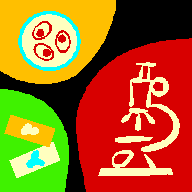|
Take a Journey in Science 2018 Welcomes All – 5th in the series What: A series of lightning talks on high-interest topics in science that shape our understanding of the world. They are short talks on high-interest topics in STEM Disciplines presented by UA faculty. |
When: February 2018
Where: Rodgers Library for Science and Engineering
Audience: All UA students. Faculty welcome too.
How long: Presentation about 10 minutes, plus Q&A
| Schedule of presentations | ||
| Speaker | Title of Talk | Date/Day/Time |
| Sara Kaylor
Capstone College of Nursing |
“Leadership Characteristics and Attributes of Baccalaureate Nursing” | Feb. 01, Thursday,
11:00- 11:15 am |
| Claudia Mewes
Department of Physics and Astronomy / Center of Materials for Information Technology (MINT) |
“Spintronics – let’s spin” |
Feb. 08, Thursday,
2:00 – 2:15 pm |
| Fred Andrus
Department of Geological Sciences |
“Making skeletons speak: records of climate change from Biominerals” | Feb. 13, Tuesday,
11:00 – 11:15 am |
| Qiang Huang
Department of Chemical and Biological Engineering /Center of Materials for Information Technology (MINT) |
“Nanotechnology – Things Behave Differently Down There” | Feb 20, Tuesday,
2:00 – 2:15 pm |
| Sevgi Gurbuz
Electrical and Computer Engineering |
“Nature-Inspired Bio-mimetic Design of Next-Generation Cognitive Radar” | Thursday, Feb 22
3 -3:15 p.m. |
Sponsor: Rodgers Library for Science and Engineering.
Join the fun and learn about science
Contact: Mangala Krishnamurthy, mkrishna@ua.edu, 205-348-2109
Take a Journey in Science Talks: Past Programs
Undergraduate Research and creative Activity Conference at UA
